Dubai: South Africa is experiencing its worst unrest in years with protesters clashing with police and looters ransacking shopping malls.
The government has stopped short of declaring a state of emergency and is working to ensure that the violence does not spread.
Up to 30 people have been killed during the unrest, four in Gauteng and 26 in KwaZulu-Natal, according to state and provincial authorities.
But what exactly led to the latest round of violence?
Violent rioting, looting erupt in 2 South African provinces
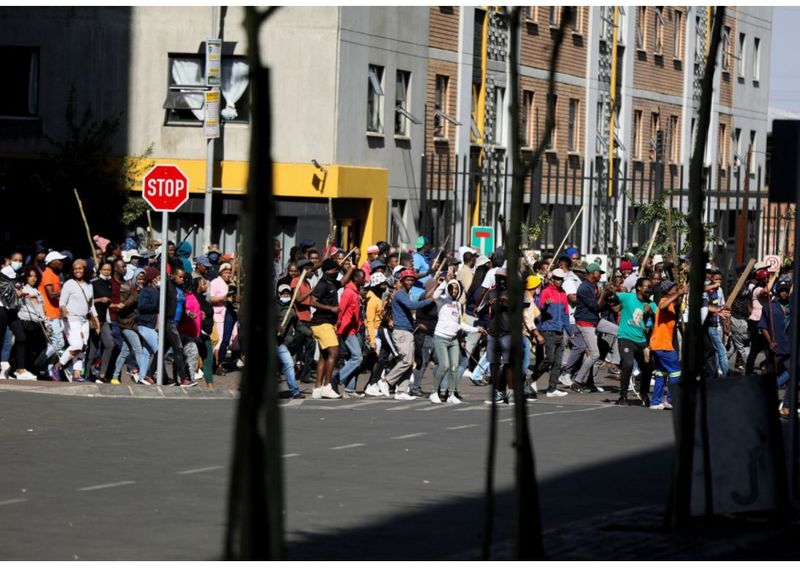
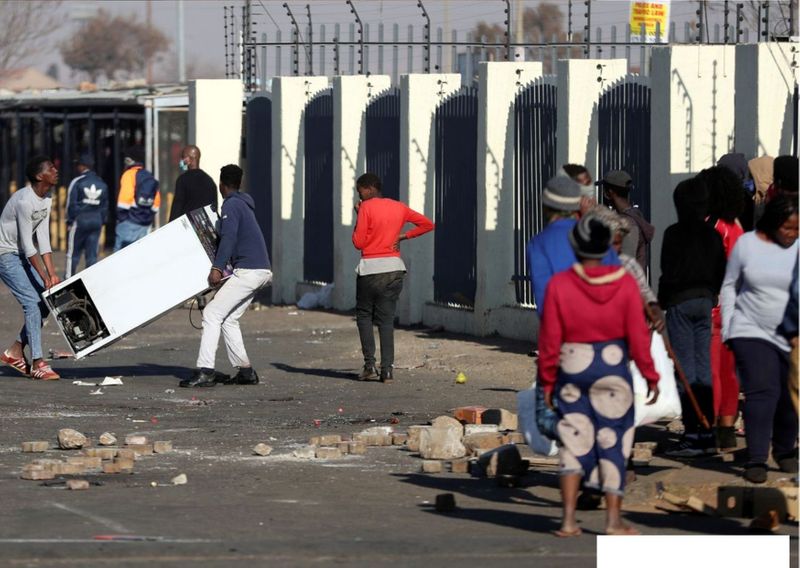
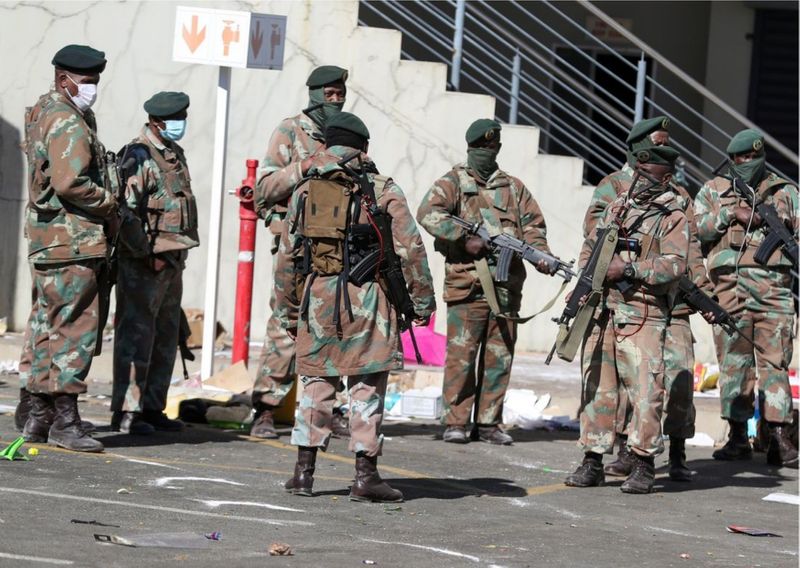
Zuma’s arrest
The initial protests were triggered by the jailing of former President Jacob Zuma, 79. He was sentenced last month after he defied a constitutional court order to give evidence at an inquiry investigating high-level corruption during his nine years in office until 2018.
Zuma faced charges of bribery, fraud, racketeering and money laundering relating to a $2.5bn deal to buy European military hardware to upgrade South Africa’s armed forces in 1999 when he was deputy president.
Zuma has complained that charges against him are politically motivated, undermined President Cyril Ramaphosa and dismissed claims of graft.
In power for 27 years since South Africa’s first fully democratic election in 1994, the African National Congress was divided over the legacy of Zuma and whether he should be imprisoned.
The initial protests in support of Zuma after his jailing were by Zulu supporters rallied by family members and ANC officials loyal to the former president.
The violence worsened as Zuma challenged his 15-month jail term in South Africa's top court on Monday. Judgement was reserved until an unspecified date.
What happened during the violence?
Shops, petrol stations and government buildings were forced to close. Looters carried off items ranging from beer and foodstuff to household appliances, and at least one shopping mall was completely trashed.
On the streets, protesters hurled stones and police responded with rubber bullets, Reuters reported.
At a mall in Johannesburg's Soweto township, police and military patrolled as shop owners assessed the damage.
Police Minister Bheki Cele said 757 people had been arrested so far. He said the government would act to prevent it from spreading further and warned that people would not be allowed "to make a mockery of our democratic state".
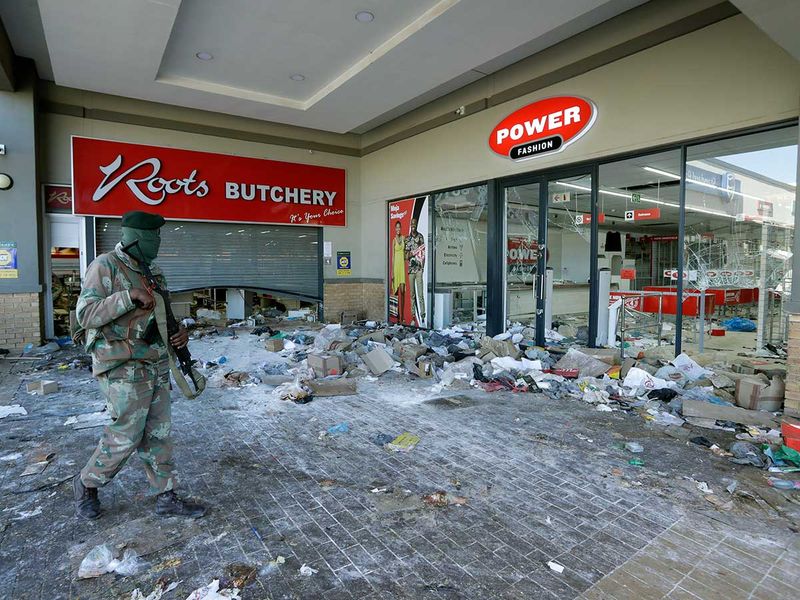
Troops moved in to flashpoints on Tuesday to prevent attacks and looting on businesses in Zuma's home province KwaZulu-Natal and in Gauteng province, where the country's biggest city, Johannesburg, is located.
Why did the protests turn violent?
Although the immediate trigger for the violence was the arrest of Zuma, the situation evolved into an outpouring of anger over poverty and inequality in South Africa for the past 27 years.
The economic impact of COVID-19 restrictions exacerbated the problems.
''South Africa has been sitting on a powder keg for some time," Mervyn Abrahams, program coordinator for the Pietermaritzburg Economic Justice Dignity Programme, told Bloomberg. Joblessness, inflation, and the lockdown means "the rioting and looting is a prime way for many criminal elements to take advantage of the situation under the banner of 'Free Zuma' whether they believe in it or not," he said.
Who is Jacob Zuma?
Jacob Gedleyihlekisa Zuma, 79, is a South African politician who served as the fourth President of South Africa for 10 years, from 2009 to 2018.
Zuma was ousted in 2018 in a move orchestrated by allies of his successor, President Cyril Ramaphosa.
Since then, he has faced legal moves aimed to bring him to book for alleged grand corruption during and before his time in office.
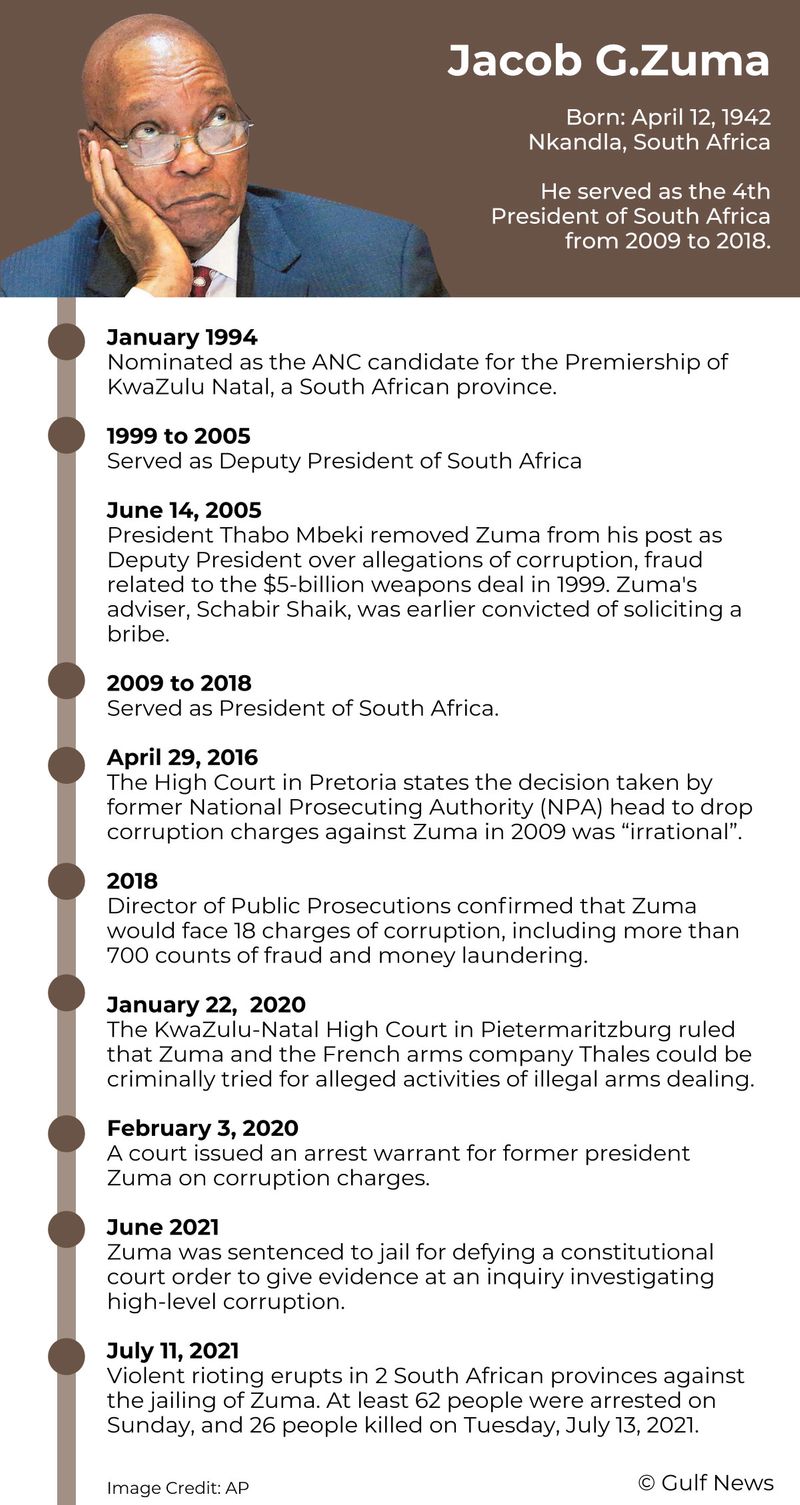
Why was he taken into custody?
On June 29, 2021 South Africa's supreme court sentenced Zuma to 15 months in prison for contempt, after Zuma defied the court’s order to give evidence at an inquiry on government deals under his watch tainted with corruption.
Zuma refused to obey a Constitutional Court order that he must testify. Essentially, he was taken in for refusing to give evidence that he has said he wanted to give, to a commission he had appointed.
The high court gave Zuma five days to appear before police. Zuma failed to appear at the inquiry led by Deputy Chief Justice Raymond Zondo in February, and the inquiry's lawyers approached the constitutional court to seek an order for his imprisonment.

In short: Zuma has depleted all his legal options as there is no higher court to appeal to. The constitutional court is normally the last stop in South Africa.
The alleged cases of corruption during and before his time in office include the so-called Zondo commission, but also a separate court case relating to a $2 billion arms deal in 1999, when Zuma was deputy president.
What is the state of the COVID-19 situation in South Africa?
South Africa is recording an average of about 20,000 cases a day. Its active cases are more than 10 times that. The continent’s most economically advanced nation has also been its worst hit by the virus, with 64,000 deaths.
As for vaccinations, the rollout has been slow — with just 4.2 million doses administered to a population of 60 million. Officials aim to reach a vaccination rate of 300,000 a day by the end of August.
Doctors say they are overwhelmed having to deal with so many COVID-19 infections all at once. Hospitals in the largest city Johannesburg, where the latest wave started, are full.
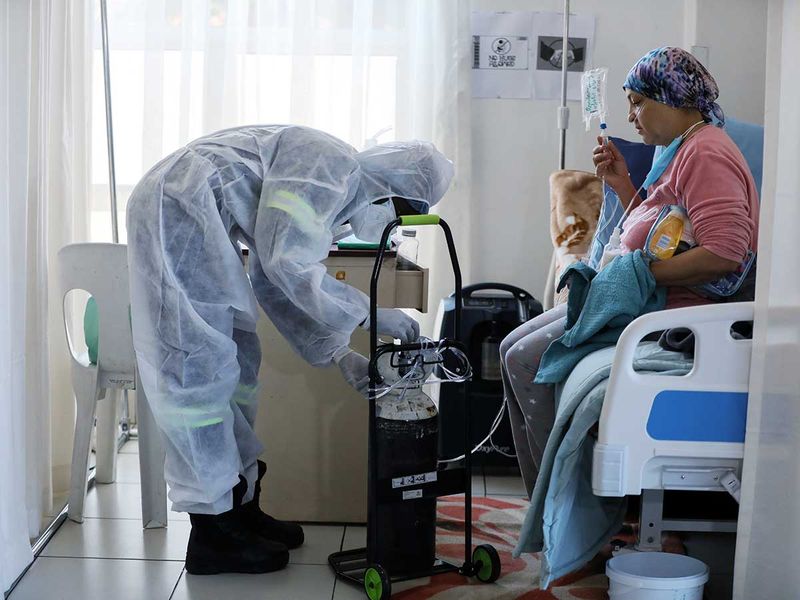
On Sunday, President Cyril Ramaphosa extended COVID-19 restrictions for another 14 days, including a ban on gatherings, a curfew from 9 pm to 4 am and a nationwide ban on the sale of alcohol.
The Delta variant has caused a huge strain on the country’s resources, as many hospitals and healthcare workers are getting strained.
"It's very draining ... patients are still phoning me from the community for help. And when we're full here, we still need to help them," said Fatimah Lambat, the doctor in charge of the ward set up by Gift of the Givers, a Muslim charity, appealed for help to ease overloaded public hospitals. "We don't want them to be lost,” she told Reuters.
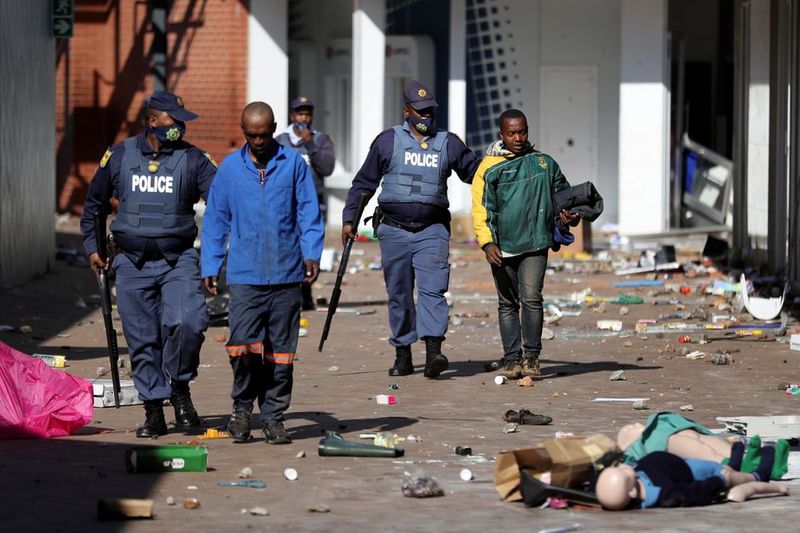
What is the rate of unemployment in the country?
Unemployment stood at a new record high of 32.6% in the first three months of 2021.
In 1994 the unemployment rate stood at 20.5 per cent for the standard definition and 31.5 per cent for the expanded definition.
There is a surplus of unskilled and low-skilled job seekers in South Africa - caused largely by historically low levels of investment in African education.
What about poverty?
According to the Department of Statistics in South Africa, 49.2% of the population over the age of 18 falls below the poverty line. The government has worked to address poverty levels mainly through a programme called the New Growth Path (NGP) that supports small businesses through financing and enhancing multiple sectors of the economy.
How has the economy been hit?
The coronavirus pandemic dealt a blow to South Africa's economy and the violent protests have worsened the situation.
Business confidence has taken a hit, key trade routes have been disrupted and banks and supermakets have shut their doors.
"The disquiet about Zuma's arrest is being used as an excuse for sheer, opportunistic looting," said Busisiwe Mavuso, the chief executive officer of Business Leadership South Africa, which represents many of the country's biggest companies, to Bloomberg. "The anarchy on the ground puts yet another nail in our ailing economy's coffin."
In an address on Monday night, Ramaphosa said: "What we are witnessing now are opportunistic acts of criminality, with groups of people instigating chaos merely as a cover for looting and theft."
from World,Europe,Asia,India,Pakistan,Philipines,Oceania,Americas,Africa Feed https://ift.tt/3wE5Z0X
No comments:
Post a Comment